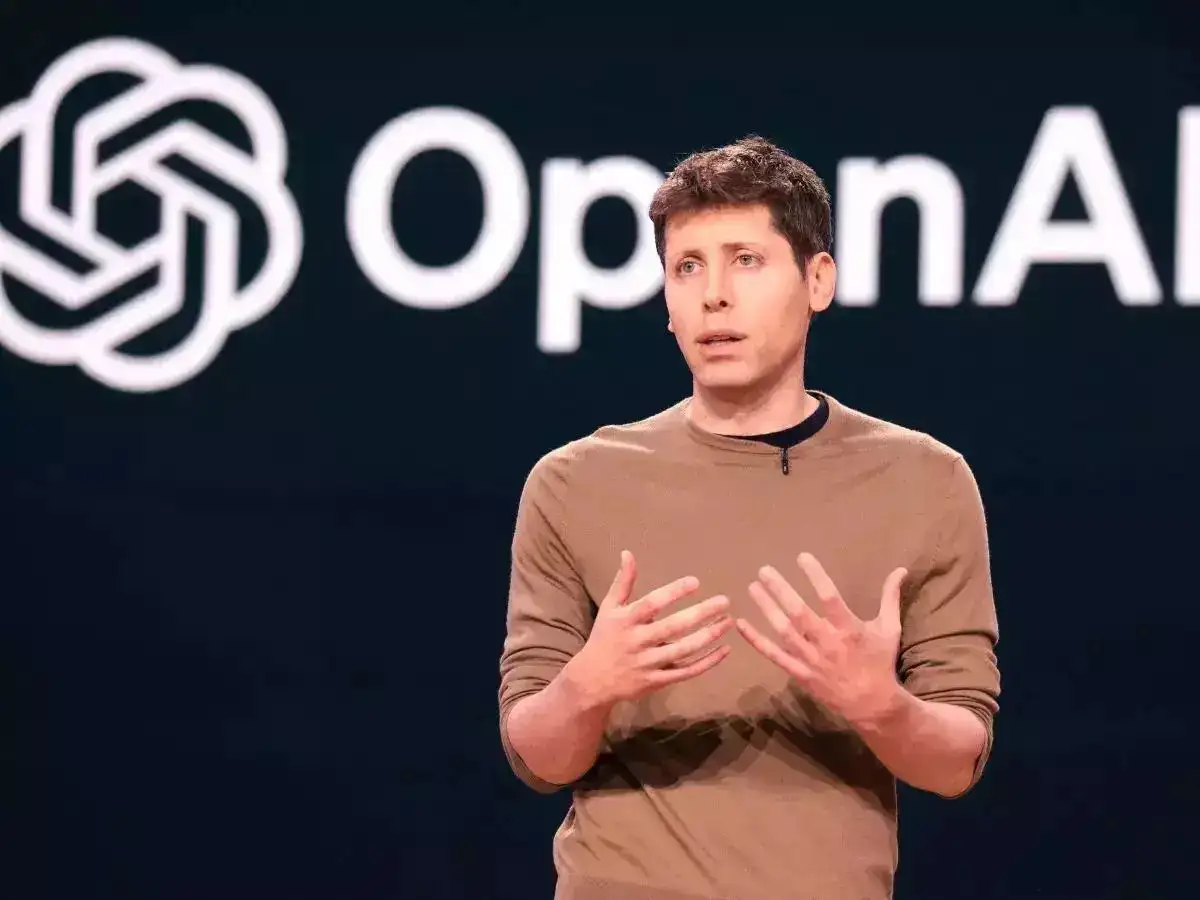Sam Altman is one of the most influential figures in the world of technology and artificial intelligence today. As the CEO of OpenAI, he has been at the forefront of developing AI models that are transforming industries, work, and daily life. Known for his sharp intellect, entrepreneurial spirit, and deep interest in shaping the future of humanity, Altman’s journey from a computer enthusiast to a leading tech visionary is both fascinating and inspiring.
In this blog, we explore Sam Altman’s early life, career milestones, leadership at OpenAI, investment ventures, and his perspective on the future of technology.
1. Early Life and Education – The Making of a Technologist
Samuel Harris Altman was born on April 22, 1985, in Chicago, Illinois, and grew up in St. Louis, Missouri. From a young age, he displayed a keen interest in technology. His life took a decisive turn when he received his first computer at the age of eight — a Macintosh — which sparked his fascination with coding and problem-solving.
Altman attended John Burroughs School, a private high school known for academic excellence, where his interest in computers continued to grow. Later, he enrolled at Stanford University, majoring in computer science. However, like many other tech entrepreneurs, he dropped out in 2005 to focus on building his own company.
2. Loopt – The First Big Step
In 2005, Altman co-founded Loopt, a location-based social networking mobile application, along with two fellow students. The idea was ahead of its time, allowing users to share their location with friends securely. Loopt raised over $30 million in venture funding and was part of the very first batch of startups funded by Y Combinator, a seed-stage accelerator that would later play a crucial role in Altman’s career.
Although Loopt never achieved mainstream success, it laid the foundation for Altman’s entrepreneurial skills. In 2012, Loopt was acquired by Green Dot Corporation for $43.4 million, giving Altman the resources and credibility to move on to bigger ventures.
3. Y Combinator – Shaping the Next Generation of Startups
After Loopt, Altman became increasingly involved with Y Combinator (YC), first as a part-time partner and then as its president in 2014, succeeding co-founder Paul Graham. Under Altman’s leadership, YC expanded its reach, funding thousands of startups that collectively became worth hundreds of billions of dollars.
Some of the most successful companies that grew under YC’s mentorship during Altman’s tenure include:
- Airbnb
- Dropbox
- Stripe
- DoorDash
Altman also launched YC Continuity, a fund that invests in later-stage YC companies, and YC Research, a nonprofit research lab. His time at YC solidified his reputation as a startup mentor and visionary.
4. OpenAI – Leading the AI Transformation
In 2015, Altman co-founded OpenAI along with tech leaders like Elon Musk, Greg Brockman, Ilya Sutskever, and others. The mission was bold and ambitious: to ensure that artificial general intelligence (AGI) benefits all of humanity. OpenAI started as a nonprofit research lab but later restructured into a “capped-profit” model to attract funding while staying true to its mission.
In 2019, Altman stepped down as president of Y Combinator to focus entirely on OpenAI. Under his leadership, OpenAI has launched groundbreaking AI models like:
- GPT-3 – A language model capable of generating human-like text.
- DALL·E – An AI system that creates images from text prompts.
- ChatGPT – A conversational AI that quickly became a global phenomenon.
- GPT-4 and GPT-5 – More advanced and powerful versions with improved reasoning and contextual understanding.
Altman’s focus has been on building AI systems that are safe, useful, and aligned with human values.
5. Philosophy on AI – Promise and Precaution
Altman has consistently emphasized the dual nature of AI — as a tool for unprecedented progress and as a potential risk if misused. He believes that AI has the capacity to solve some of humanity’s most complex challenges, from healthcare to climate change, but must be developed responsibly.
Some of his core beliefs include:
- Global Cooperation: AI governance should involve multiple countries to prevent monopolization.
- Ethical AI: Developers must ensure that AI systems do not perpetuate bias or cause harm.
- Long-Term Thinking: Preparing for the potential rise of AGI requires proactive safety measures.
He has testified before governments and regulatory bodies, advocating for balanced regulations that foster innovation while ensuring safety.
6. Investments and Other Ventures
Aside from OpenAI, Altman is a prolific investor. His portfolio spans technology, energy, and healthcare companies. He has invested in high-profile startups such as:
- Airbnb
- Stripe
- Asana
Altman is also interested in breakthrough technologies like nuclear fusion. He is the chairman of Helion Energy, a company working to make nuclear fusion a viable and clean energy source. He has also backed companies exploring lab-grown meat, AI-driven healthcare solutions, and space technology.
7. Personal Traits and Leadership Style
Altman is known for his calm demeanor, strategic thinking, and willingness to take bold risks. He often emphasizes the importance of focus, perseverance, and long-term vision in entrepreneurship. His leadership style combines a deep understanding of technology with the ability to inspire teams and partners.
He also follows a disciplined lifestyle, dedicating significant time to reading, learning, and thinking about the future. Altman is vocal about the importance of self-education and often shares his thoughts on productivity, investment strategies, and societal issues.
8. Controversies and Challenges
Like most influential tech leaders, Altman has faced challenges and criticisms. Some have questioned OpenAI’s shift from a nonprofit to a capped-profit model, fearing it could lead to commercialization over ethics. Others have debated the pace at which OpenAI releases its powerful AI models, citing potential misuse.
In late 2023, Altman briefly left OpenAI due to internal disagreements but returned within days after employees and investors rallied behind him. This episode highlighted both the intense pressures of leading a cutting-edge AI company and the strong trust his team places in him.
9. Vision for the Future
Altman’s vision extends beyond AI. He has expressed interest in areas like:
- Universal Basic Income (UBI): He has funded experiments to explore whether UBI could address job displacement caused by automation.
- Life Extension: Investing in biotechnology to improve human health and longevity.
- Clean Energy: Supporting innovations in sustainable energy to combat climate change.
Regarding AI, he envisions a future where intelligent systems work alongside humans to enhance creativity, productivity, and problem-solving capabilities — but insists on the importance of guardrails to avoid catastrophic risks.
10. Lessons from Sam Altman’s Journey
For aspiring entrepreneurs and technologists, Altman’s career offers several valuable lessons:
- Start Early: Building skills and experimenting with ideas from a young age can be a huge advantage.
- Take Calculated Risks: Dropping out of Stanford was a risk that paid off for Altman.
- Think Long-Term: Focus on impact and sustainability, not just short-term gains.
- Value Ethics: Technology should serve humanity, not the other way around.
- Adapt and Evolve: From Loopt to YC to OpenAI, Altman has continuously reinvented himself.
11. The Legacy in the Making
At just under 40 years old, Sam Altman’s legacy is still being written. However, his influence on the tech world is undeniable. By combining entrepreneurial acumen with a commitment to responsible innovation, he has positioned himself as one of the key architects of the AI-driven future.
If AI becomes as transformative as the internet — something Altman strongly believes — then his role in shaping it will be studied and remembered for decades. Whether it’s guiding OpenAI toward AGI, investing in clean energy, or mentoring future entrepreneurs, Altman continues to work at the intersection of technology, ethics, and societal progress.
12. Final Thoughts
Sam Altman embodies the qualities of a modern visionary — technically skilled, deeply thoughtful about the ethical implications of his work, and unafraid to tackle the world’s most pressing challenges. From founding Loopt to leading Y Combinator, and now steering OpenAI, he has consistently been ahead of the curve.
In a world racing toward technological transformation, leaders like Altman play a crucial role in ensuring innovation benefits humanity as a whole. His work reminds us that while technology can be powerful, it is the vision and values behind it that ultimately determine its impact.










